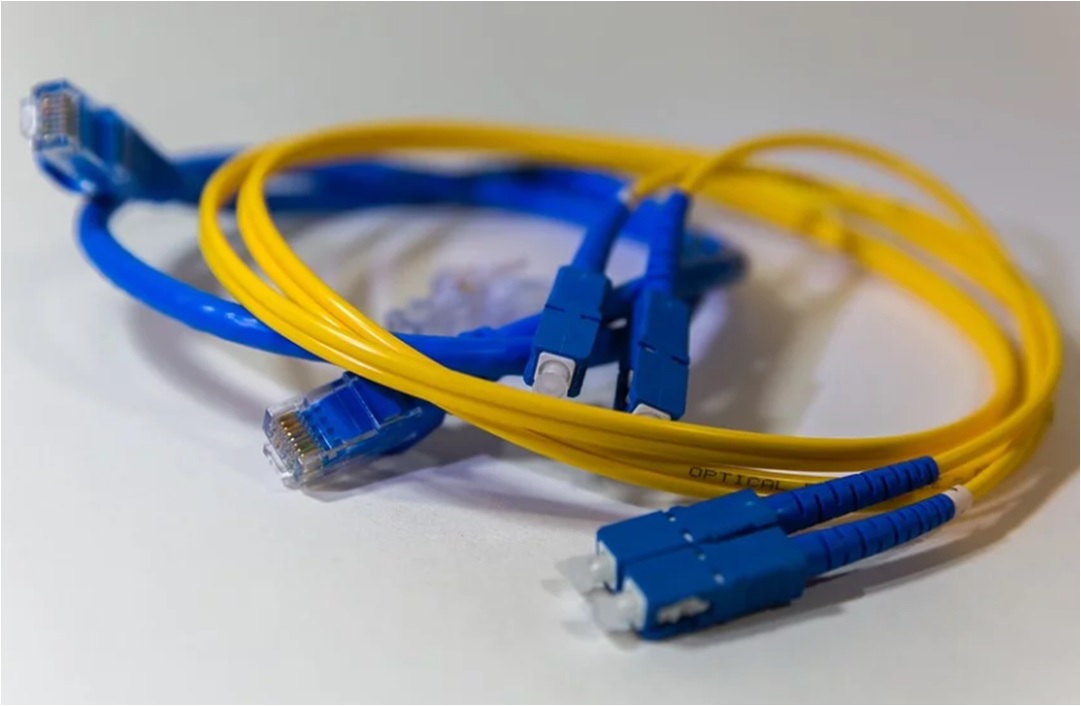Why use Fiber Optic Network for Business?

With the internet becoming an integral part of our lives, no home or business enterprise is without an internet connection. Even if houses manage without network connectivity for a while, it could lead to a serious loss of productivity in businesses.
The internet is not just used to connect with the outside world and customers but is also used by employees to communicate with each other and get the job done. In enterprises that use cloud solutions to host their business systems, even a tiny glitch in the internet connection could put them behind schedule.
For uninterrupted network connectivity and high-speed internet, many enterprises are moving over to fiber optic network. Fiber cables are replacing copper cables to ensure reliable, secure, and faster network connectivity.
Fiber cables are a collection of numerous tiny optical fibers. Every optical fiber has two parts- the core and the cladding. While the core is made of glass and is the innermost part of the fiber, the outer thick covering that acts as protection is known as cladding and is made of plastic or glass. The light passes through the core and travels extremely fast, carrying pulses of binary data. This is how information is transmitted from a computer or electronic device to another.
Though fiber optics is mainly used for network connectivity, it is also used to connect computer systems to one another and create an integrated network of computers. From surgeries to space-related equipment and automotive industry, fiber optics cable is widely used than most are aware of.
While DSL and copper cables also transmit information, fiber optic cables are becoming more popular for various reasons such as improved speed, low latency, long term cost advantage, and symmetric speed. Many companies provide fiber optic network connections for enterprises. They offer various packages from small, medium and large scale enterprises. Before choosing a Fiber Optic Network Provider For Business, the enterprise should keep in mind the following factors.
- The flexibility of network connectivity options provided by the company.
- Availability of technical support to troubleshoot connectivity issues.
- The areas in which the company provides the internet connection.
- Monitoring and maintaining the network by performing regular upgrades.
- Network stability and performance when compared to other companies.
- Additional security features to ensure data security.
- The cost of installation and maintenance services.
Fiber internet is different from cable internet in many ways. Installing fiber optic network is time-consuming and cost-intensive. This is one of the reasons why enterprises tend to hesitate to switch over to fiber optic network.
Despite the complex initial installation process, once the network is setup, enterprises will notice that they can reap a lot of benefits by using fiber optic cables instead of the regular copper cables.
Reliability
The reason we stress this word repeatedly is that we understand the importance of an uninterrupted internet connection. Enterprises can lose millions in a short period of time due to loss of internet connection.
Copper cables are easy to sabotage. The data can be compromised by hackers during transmission, and this can lead to complications for the enterprise. Changes in the weather, the presence of electronic magnetic field, and power outages could result in disrupted internet services.
Fiber optic network is also known as a passive network as it doesn’t depend on power availability to transmit information. It is rare for the internet connection to go down due to the loss of electricity.
Moreover, the optical fibers in a fiber optic cable can resist the electromagnetic waves. The presence of a strong electromagnetic field doesn’t cause loss or corruption of data. Climatic changes also do not affect fiber cables. Best used for long-distance connections, breaking or damaging a fiber cable is not easy.
Speed
While we have already discussed how fiber cable provides a faster internet when compared to copper cable, the advantages of having a faster internet connection are many.
With high-speed network connectivity, enterprises can share huge amounts of data in less time. The upload and download times will be reduced, allowing employees to multitask and work efficiently.
Live streaming of HD videos will no more be an issue. This makes it easier for enterprises to conduct video conference meetings with associates across the globe. Instead of traveling to a particular location, employees can be a part of a meeting using technology and without stepping out of their cabin.
Fiber optic network has low latency and thus the speed of the internet connection can be sustained despite the heavy load on the network. Enterprises can ask the Fiber Optic Network Provider For Business for a private network for their business if required.
There is no denying that fiber optic network can reduce the operational expenses of an enterprise while providing it with an efficient internet connection.